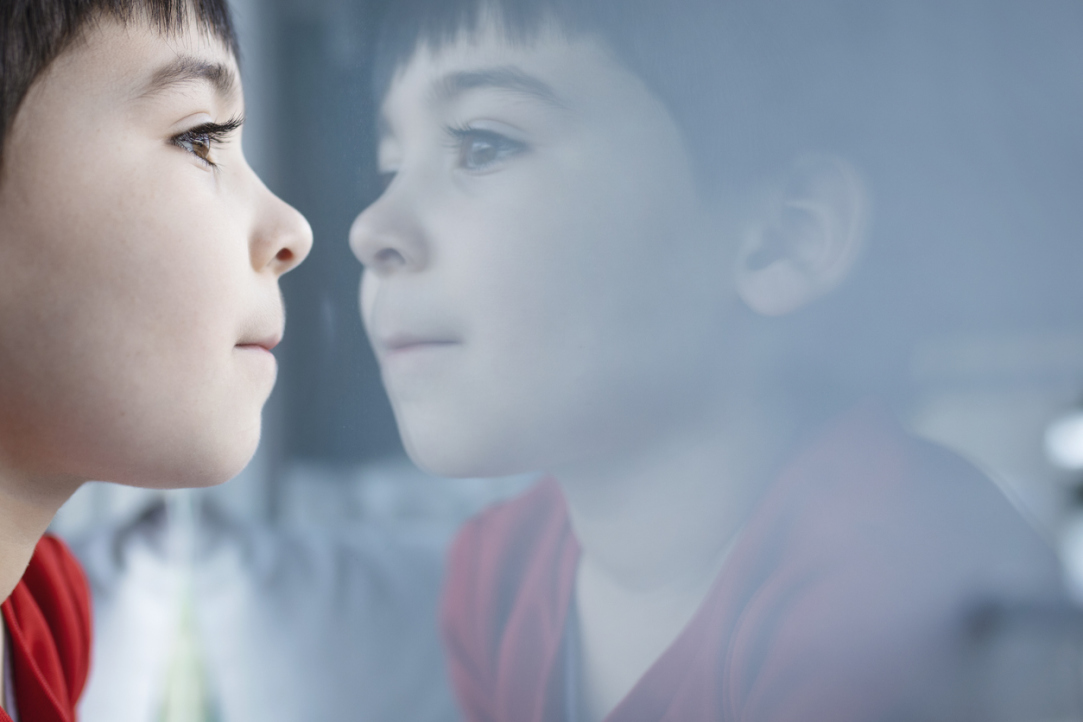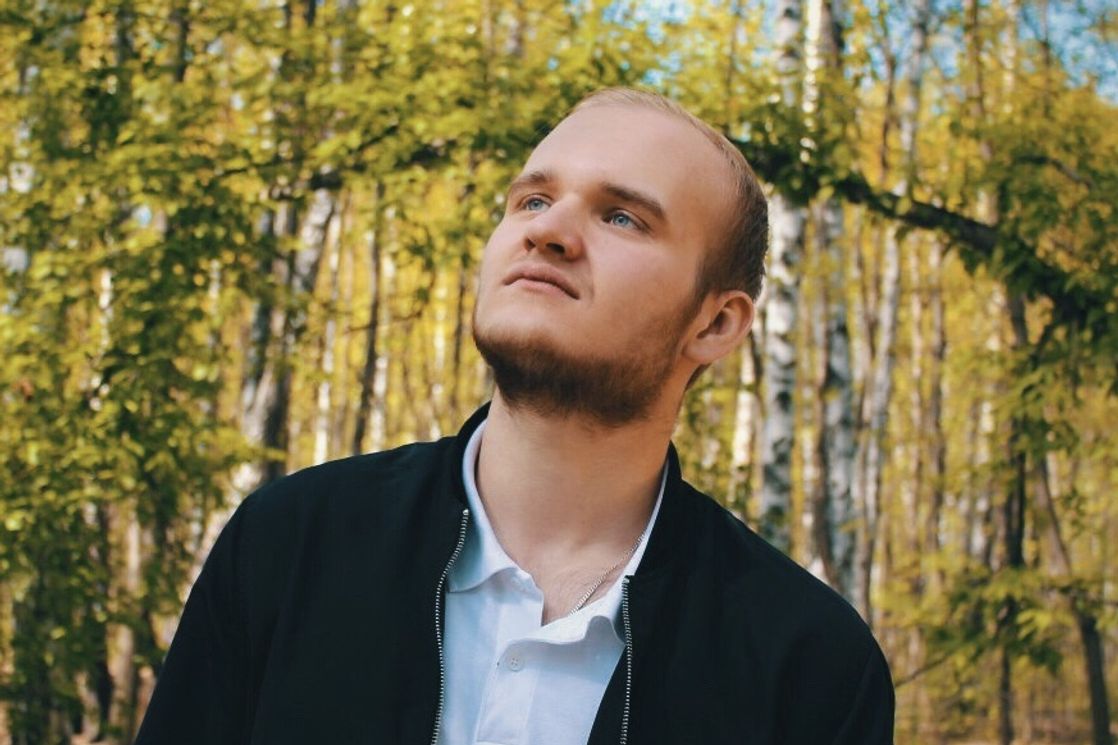‘Our Experience Shows That Motivation and Patience Can Achieve the Impossible’

Psychologists Sergey Andreev and Egor Surdeykin are both graduates of HSE University. Together with other graduates of the university, they created a project to provide supplementary education for children with autism spectrum disorder (ASD). The programme for middle- and high-school students covers such subjects as computer science, programming, and mathematics.
Sergey Andreev

How to help children with ASD
In the summer holidays after tenth grade, my grandfather gave me a couple of popular science books on psychology. After reading them, I decided that if I was going to get a higher education, it would have to be in a field that I would never get bored of. For me, that field was psychology.
When I studied my Bachelor’s in Psychology at HSE University, I met a girl who worked in a ‘resource class’ (a class for children with special needs in a mainstream school - Ed.). In the August before my third year, I officially joined that class as a tutor. That is how I became familiar with autism spectrum disorder.
To say it was difficult and scary would be an understatement. But I absolutely loved it and I realised that I wanted to develop in this field. While working at the school (full time!) and studying at HSE University, I completed three stages of further training in psychological and teaching support for children with ASD over the course of a year. At the same time, I was researching ASD from a neuroscience perspective (I was studying on the cognitive track at the time) and working in private centres with children of various ages whose diagnoses were at various levels of severity. Basically, I immersed myself fully in this field. At some point, I realised that I wanted to work specifically with teenagers and adults with ASD. In October 2021, I launched my first project, KiberNETiki, with support from the ‘Iskusstvo byt ryadom’ (‘The art of being close’) foundation and the curator of the Dobry resource centre.
Origins of the RASsleduy project
As part of the KiberNETiki project, I spoke a lot to the parents of teenagers with ASD and often heard the same question: ‘Do you know any specialists who can teach my child mathematics and computer science?’ Learning material becomes much more complicated in middle and high school. Subject teachers do not have the time, motivation, and sometimes the ability to explain complex, abstract concepts to each individual student, never mind students with ASD. How can we help these children and their families? Mathematics and computer science are not my strong suit, but I have a great understanding of how to adapt material. I needed to find motivated and responsible teachers. A lot of university students also work as tutors; some have lengthy and significant experience working with all kinds of children. I found several students like this, held seminars on the specifics of working with teenagers with ASD, and we tried it out. At the start, I attended each class personally. But after a couple of weeks, I supervised them remotely. We formed a systematic approach, demand increased, we had new ideas and opened up new horizons. Parents came to us from other regions and even other countries. This stage is when Egor Surdeykin joined us, and we came up with the RASsleduy (Investigate) project together.
We currently offer supplementary education in mathematics, computer science, and the basics of programming. We recently piloted an online format and found a lot of advantages to it. We plan to specialise in this area. We are also developing classes in biology, chemistry, Russian language and basic computer skills for younger students with ASD.
An individual approach
This project is designed for children and teenagers with special needs (not only ASD) who study in mainstream schools. Our goal is not to force people to cram information, but to appeal to each student with the study of difficult subjects.
The students’ parents pay for our work, but we are looking for external funding in order to minimise payments or make the classes completely free.
When working with a particular child, we assess his or her academic skills then develop and implement an individual curriculum. Instruction is carried out based on applied behaviour analysis techniques, with regular monitoring of progress and timely adjustment of the programme. Our experience shows that motivation and patience can achieve the impossible.
The RASsleduy project on Telegram (in Russian)
Egor Surdeykin

Psychology at HSE University
I studied in a physics and mathematics class and heard a lot about HSE University. My older brother graduated from it with a Bachelor’s in Programming, so I already knew and understood the academic and corporate culture of the university. I liked how students and teachers at HSE University treated each other. However, I was not planning to apply to the university due to its lack of a medical programme. I brought the documents to apply to the Psychology programme as part of group—on the last day of admissions, a good friend of mine suggested that I go with her. I knew nothing about psychology, but that made it even more interesting to dive into an unfamiliar subject. Now, I have a bachelor’s degree and a Master's in Positive Psychology from HSE University. Based on my experience and my conversations with students and graduates of other universities, I understand how fortunate I was to study at HSE University.
Helping people with special needs
In my bachelor’s programme, I trained to be a psychological counsellor. We looked at various topics, including working with children and adults with special needs. At the time, I was already quite immersed in this field, but I had no idea that I could start working in it. I started talking to Sergey Andreev a lot in the third year, who worked with children with ASD professionally and closely during the learning process. I saw that Sergey’s activities were getting good results.
My master’s programme included a course on Positive Psychology of Aggravated Conditions of Personality Development, in which we talked about the specifics of helping people with special needs, including ASD. The fact that they generally have few opportunities and resources for development and adaptation came up many times. I knew that I wanted to help these people. That is the aim of the RASsleduy project—with our support, high-school students with ASD can learn exact sciences at their best level.
See also:
'I Want Science to Help Me Explore New Horizons'
Eliana Monahhova worked as a journalist for various media outlets, but after realizing she frequently wrote long-form pieces on the psychology of the human brain, she decided to change her career focus. In this interview with the HSE Young Scientists project, she discusses the perception of fake content, shares her dream of meeting Robert Sapolsky, and talks about her upcoming YouTube channel.
Psychologists from HSE University Discovered How Love for Animals Affects Relationships with People
Researchers from HSE University have identified a connection between attachment to pets and attitudes toward nature and other people. The study found that the more joy people derive from interacting with their pets, the more they want to help others. However, love for animals is not always associated with concern for nature. The findings were published in the Social Psychology and Society journal.
Psychologists Study Daydreaming in Russian Cultural Context
Researchers at HSE University, having examined the role of daydreaming in the Russian cultural context, conclude that constructive daydreaming can help people with gaining insight into their life's trajectory, fostering personal growth, discovering existential meaning, enhancing psychological wellbeing, and cultivating a balanced temporal perspective. The study findings have been published in Cultural-Historical Psychology.
Workaholism Helps Young Narcissists Boost New Venture Performance
An international team of researchers including Professor Galina Shirokova, Director of the Strategic Entrepreneurship Centre at HSE University in St Petersburg, and her students Nailya Galieva and Diana Doktorova, examined the impact of narcissism on young entrepreneurs' success. The authors have demonstrated that a company founder's workaholism can amplify the influence of narcissism on a new venture's performance.
Plurilingualism Compensates for Low Extraversion in Nurturing Creative Skills
Researchers at the HSE Laboratory for Linguistic, Intercultural, and Creative Competencies have examined the role of the Big Five personality traits in moderating the development of creativity among individuals who use multiple languages and have intercultural experiences. It has been found that acquiring multiple languages and engaging with diverse cultures can enhance an individual's creativity and compensate for some deficiencies in communicative abilities. That said, language practices are likely to foster creativity only in mentally stable individuals. The paper has been published in the International Journal of Bilingual Education and Bilingualism.
Attainment of Happiness in Psychologically Mature Individuals Linked to Pursuit of Meaning
Austrian psychiatrist Viktor Frankl believed that the quest for meaning constitutes a fundamental and intrinsic motivation for all human beings. Some other authors suggest that the need for meaning or purpose only emerges at higher levels of personality development. According to a team of psychologists from HSE and the University of Paris Nanterre, individuals who have achieved higher levels of ego development are inclined to relinquish hedonistic motives in favour of cultivating mindfulness and embarking on a quest for meaning. These findings have been published in Frontiers in Psychology.
Married Men Less Prone to Workplace Burnout
Greater marital satisfaction lowers the risk of professional burnout, with this correlation being more pronounced among men than women. This is a conclusion made by HSE psychologists after conducting a study on the effect of social interactions on workplace burnout on a sample of 203 employees from several Russian companies. According to the researchers, gaining a better understanding of the specific aspects of burnout experienced by individuals makes it possible to address this syndrome more effectively. The paper has been published in Organizational Psychology.
HSE Psychologists Propose New Approach to Building Soft Skills
Researchers at HSE's School of Psychology have used the findings of studies into creativity and multilingualism to develop 'Plurilingual Intercultural Creative Keys’ (PICK), a new programme which integrates both aspects into the teaching and learning process. The study results have been published in Psychology. Journal of the Higher School of Economics.
Card File: Plurilingual Creativity
Fluency in foreign languages has multiple advantages in terms of cognitive abilities, communication skills, cultural awareness, and career advancement. But can bilingualism and plurilingualism (knowledge of multiple languages and related cultural contexts) contribute to creative thinking and one's ability to generate new ideas? Studies have shown that linguistic, intercultural and creative competencies are interrelated, and their synergy can give rise to plurilingual creativity. The following overview is based on several papers by Anatoly Kharkhurin, Director of the HSE Laboratory for Linguistic, Intercultural and Creative Competencies.
Readers Found to Rely on Word Spelling Rather Than Sound in Reading
Skilled readers are known to extract information not only from the word they are looking at but from the one directly following it. This phenomenon is called pre-processing. Researchers from the HSE Centre for Language and Brain analysed the eye movements of primary school children and adults during silent reading and found both groups to rely on orthographic, rather than phonological, information in pre-processing an upcoming word. The study has been published in the Journal of Experimental Child Psychology.


